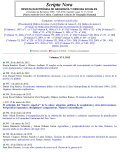Care for dependent people law, is a change in the Spanish welfare system? Familiarism versus professionalism
Keywords:
Spanish Care Service act, welfare regimes, social policyAbstract
The new Spanish Care Service Act (LAPAD) enters in a critical phase due to budgetary constrains imposed by the Spanish central government. Anyhow still before a series of evaluations of and critics on the implementation of the new system brought up the idea that this is a law of good intentions, but it clashes in its application with the social political reality. There is another highly interesting aspect of the implementation of the new law: there are great differences between regions in its implementation, which could mean that we can’t speak of a homogeneous Spanish welfare regime. This would have implications for policy design, but also theoretical consequence for instante in the approach of welfare regimes.The following article analyzes what have been the regional trajectories of the LAPAD. The aim is to see if there is some pattern of regional behaviour according to the specific context. The point of reference is the theory of welfare regimes complemented by the familiarism approach developed by Saracena and others. We ask a) if the LAPAD produce significant changes in the Spanish welfare regime and b) which are possible trajectories.
Downloads
Issue
Section
Articles
License
Los autores que publican en esta revista están de acuerdo con los siguientes términos:
- Los autores conservan los derechos de autoría y otorgan a la revista el derecho de primera publicación, cin la obra disponible simultáneamente bajo una Licéncia de Atribución Compartir igual de Creative Commons que permite compartir la obra con terceros, siempre que estos reconozcan la autoría y la publicación inicial en esta revista.
- Los autores son libres de realizar acuerdos contractuales adicionales independientes para la distribución no exclusiva de la versió de la obra publicada en la revista (com por ejemplo la publicación en un repositorio institucional o en un libro), siempre que se reconozca la publicación inicial en esta revista.





